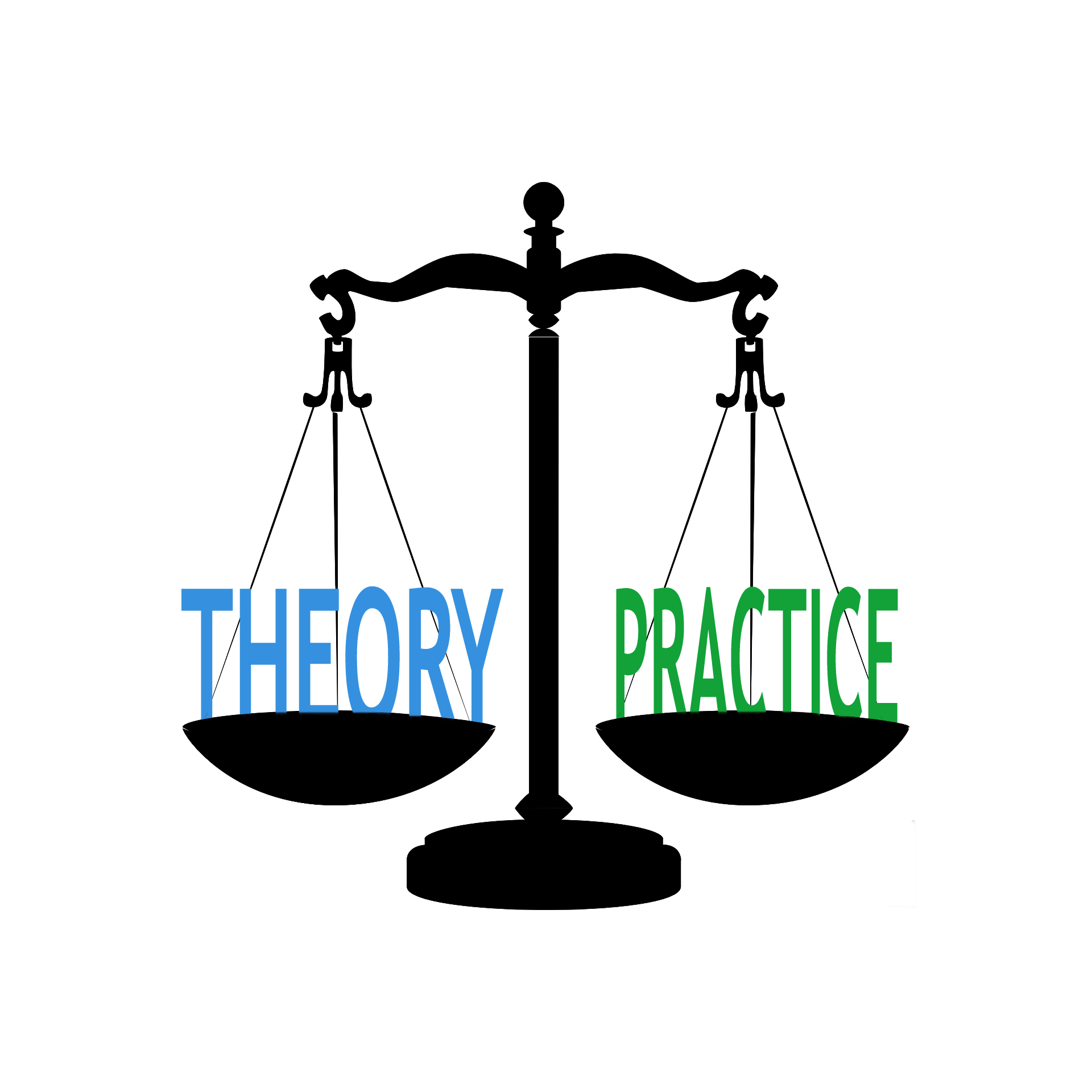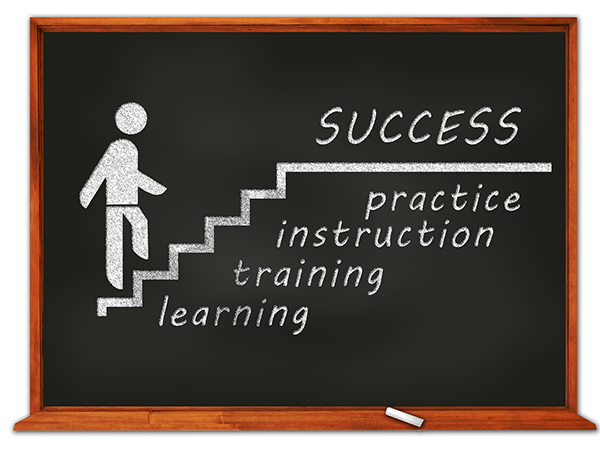
When you are wanting to learn how to do something new, there are different directions that you can approach the activity from. On direction of approach is to research and gather all the information you can find about the topic, perhaps reading, watching videos, looking at charts, and listening to the views of experts about the activity to try to really understand every detail of it intellectually. Or another direction of approach is to just try doing the activity and then seeing what you learn from your attempts, and how this builds your understanding of the activity.

Essentially, we can approach the activity from the direction of intellectual knowledge and theory, or from the direction of practical experience. This article will look at some of the limitations of leaning too heavily on just one of these approaches when learning qigong, and how we can integrate both approaches together in a more balanced approach to learning that will lead to deeper understanding and a richer experience of our qigong practice.
Monkey See, Monkey Do
Some people may be familiar with or have experienced qigong training where the teacher simply demonstrates the movements, and the students just follow along trying to copy the teacher the best that they can. This process of copying can continue for years, or even decades, without any explanation of the purpose of the movements, and sometimes without any words at all. This type of training can be quite enjoyable as it gets you to really focus on what you experience within your own body and energy. It can also help you to tune in more deeply to the nuances of the teacher’s movement and what they are doing with their energy as they demonstrate the practice. This can lead to some quite deep and profound experiences and some people can get quite romantic about learning in this way – thinking that it is the only way that practices should be taught, and the only way to access some of those deeper experiences and understanding – without words or explanation.
I think perhaps they take the quote from the Dao De Jing “The Dao which can be spoken is not the true Dao” a bit too literally… This quote refers to the idea that naming something or trying to articulate something with language necessitates abstracting the concept of that thing. So whatever description we give of something using language will only ever be an abstraction of that thing. To truly understand we must go beyond language to directly experience and comprehend its true nature. But this does not mean that speaking about something is not a useful tool for understanding. The abstracted language that we use can direct our attention and awareness in useful ways to help us in the process of gaining our own direct experience.
While a lot of benefit can be derived from wordless, or explanation-less training, there are some clear limitations to this as well. I think some of these limitations are expressed quite well within one of the scenes in the popular movie “Crouching Tiger, Hidden Dragon”. One of the characters (Jade Fox), has been teaching a young apprentice (Yu Jialong) kung fu. After a pivotal battle in the movie Jade Fox realises that her young apprentice has surpassed her level of skill at kung fu. When she tries to find out how this is possible she discovers that as well as practicing with her, Yu Jialong has also been studying from the same manual that Jade Fox learned kung fu from – but Jade Fox is illiterate and has had to rely on just looking at the diagrams, while Yu Jialong can also read the instructions that accompany them…
Clearly Yu Jialong learned a lot from simply copying her teacher, and Jade Fox learned a lot from just copying the diagrams in the manual. But when Yu Jialong was able to also access the theory that accompanied those manuals, she was able to quickly surpass her teacher’s ability, even though her teacher had many more years of practice than her.

There is a lot of benefit to just focusing on the experience of your practice, but the process of development is long and slow, and even after an extended period of time many important aspects of the practice may still not be understood. At some point on this path, an understanding of theory is also needed to develop further or more quickly. Many authentic teachers who use this type of teaching may do so for a period of time for a number of purposes. Sometimes it is to help the student really establish their own base of experience before adding in the abstraction of language and theory. Other times it is as a test, to see if the student is motivated and dedicated enough to persist in their training, as well as sometimes to assess other aspects of their character before teaching them more. Once this stage is passed, then the teacher will discuss theory as it relates to much more openly with their students to help them in their progress. If the teacher does not progress to sharing theory in this way it can mean several things. It could be that the student needs more time developing their foundation, or they have not passed the test yet, or unfortunately it could also mean that the teacher is much like Jade Fox, having gained a certain amount of experience and skill through their practice, but never having gained an understanding of the underlying theory themselves, they cannot pass it on either…
Good In Theory…
Studying theory allows us to benefit from the distilled knowledge and wisdom gained from years, decades, and even millennia of other people’s study and practice (there is evidence of qigong practice dating back from 5,000 to 8,000 years). Theory can provide a framework that we can use to organize our understanding of our own experience, directing our attention and focus so that we can more easily observe details that might otherwise take us a long time to notice and appreciate, or that we may not discover at all within our lifetime. This can allow us to progress along our qigong journey much more surely and quickly, helping us to attain higher levels of skill, and also greater and more specific benefits that we may seek. This can unlock many treasures of knowledge and experience for us. A good understanding of theory derived from the experience of others can also help us to avoid mistakes that would slow our progress, or even dangers that could do us harm.
Clearly there are benefits and advantages to studying and understanding the theory underlying qigong, but to go too deeply into the study of theory without sufficient practice can also be detrimental in a variety of ways as well.

The first of these is simply misunderstanding what those theories even mean. You can think of it a bit like trying to learn to swim without getting into the water. The process is likely to be difficult and slow, and some of the ideas that you might encounter about swimming are likely to be very hard to understand without actually experiencing the buoyancy and resistance created by being in the water. At the very least you are likely to put a lot of effort into things that turn out not to be actually useful to you, or this could even lead you to dismiss some of the theory and stories that you discover about swimming as ‘myth’ or ‘fantasy’ because you have no tangible experience of your own to relate them to.
On the flip side of this, if you delve too deeply into theory without enough practice, you may develop a tendency to extrapolate what little experience you do have and accept hypothesis as fact, rather than just a possible avenue to explore and verify. Unfortunately there has been a lot of this both historically and in modern times – so there are lots of myths and fantasy out there mixed in with true accounts and theory. If you approach the subject purely intellectually you can easily either dismiss what is actually useful and valuable, or accept what is just fanciful and imaginative – both of which will limit your progress and the benefit you get from your qigong practice. The only way to truly sift between these different types of information and assess their accuracy is through testing it and measuring it against your own experience.
There is certainly value to intellectual exploration, hypothesizing and theorizing to seek out understanding of what is beyond your current experience. This can lead you to many useful new discoveries. But to actually deliver value in your life it needs to be connected to the reality of your lived experience. You could think of this as being like flying a kite. The kite, like our minds can soar high and move quite freely through space, but to do this effectively it needs a string to tether it down to the earth, or our tangible experience. Without the tether of the string, or practical experience, the kite – or our theories and imagination, either fails to launch, or quickly gets out of control and can either fly away and be lost or rapidly crash down to the earth or into a tree – none of which is particularly productive.
Theory or Practice – If You Had to Choose…
So there is a clear place and value in both theory to extend our understanding and practice to acquire practical experience, but if for some reason I had to choose just one I would choose practice every time. Theory can deliver so much in terms of understanding, but all of that is essentially meaningless without practice. Practice is what actually makes qigong real and brings its benefits into our lives. Without an understanding of theory our progress in our qigong practice may be slower, and we may not receive as much benefit as we otherwise could. But without practice we wouldn’t receive any benefit at all – qigong would be just a curiosity or an intellectual fancy. Simply practicing without understanding will lead to quite a lot of benefit over time, and often to some beautifully profound personal experiences – so clearly this must always be the priority.

Fortunately it doesn’t have to be either or though. We can find a healthy balance where we establish a strong foundation of practice and apply theory to further enrich and deepen our understanding and experience of that practice. We try to strike this balance in the in-depth Long White Cloud Qigong certification courses. A lot of the focus of these courses is on introducing you to the various practices and then you actually doing them so that you can gain your own experience with them. We then feed in the supporting theory to help you to understand the practices better, and to help you to refine your practice to gain even more benefit from it. It is much more than just learning movements, it is learning the principles of how the movements work and what they do.
Within the courses we also have regular group question and answer sessions which allow you to clarify your understanding of what you are experiencing and how the theory applies to it. These sessions also allow you to gain a broader perspective on the practices by hearing the experiences of other people in the group going through the course with you, as well as to form connections with fellow students.
Many participants in previous courses say that the experience has been lifechanging for them, and often that it has helped them to link together many things that they had studied or heard about previously and gain a true understanding of them – making the practices real and practical for them, rather than just theory. You can read and hear some of the comments from previous course participants here, and if you are interested in upcoming certification courses – you can find details of those here.
2 Comments. Leave new
This blog is perfectly timed for me as I’ve just begun to add some structured theory to my practice of qigong by starting the Small Universe Course. I’m delighted that I have had some time practicing, rather than the “learning to swim without getting in the water” route.
Great